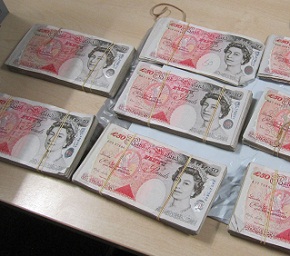New Measures Proposed to Fight Money Laundering: IBB’s Business Crime Expert Comments
New Measures Proposed to Fight Money Laundering: IBB’s Business Crime Expert Comments

Countries from Britain to Afghanistan pledged on Thursday to set up public registers of company ownership in a collective effort to make it harder to launder the proceeds of corruption around the globe.
Prime Minister David Cameron announced the measure at the start of a global anti-corruption summit he is hosting in London, but critics said the proposed registers may not make a meaningful impact unless tax havens ended secrecy as well.
The build-up to the event was marred by Cameron being caught on camera describing Nigeria and Afghanistan, which are both taking part, as "fantastically corrupt", but he later said that the leaders of both countries were tackling the problem.
U.S. Secretary of State John Kerry, addressing a plenary session at the summit, said that corruption was as much of an enemy as some of the extremists Washington was fighting.
"It is a contributor to terrorism in many different ways and the extremism that we see in the world today comes to no small degree from the utter exasperation that people have with the sense that the system is rigged," Kerry said.
"We see this anger manifesting itself in different forms in elections around the world, including ours," he said, alluding to the unexpected success of Republican Donald Trump and Democrat Bernie Sanders in the U.S. presidential primaries.
France, the Netherlands, Nigeria and Afghanistan would join Britain in launching public registers of true company ownership, Cameron's office said. Kerry said the United States had already announced steps to improve transparency on business ownership.
More could follow in the course of the summit.
Cameron's office said that any foreign company that owns a property in Britain or wants to buy one or to bid for a central government contract would have to join the new register.
The aim is to expose those who hide behind obscure shell companies to own properties, a particularly acute problem in London which has been hit by repeated scandals involving luxury homes owned by corrupt foreign politicians and businesspeople.
Panama Papers
Some critics said the impact of the registers might be limited unless tax havens were persuaded or forced to also open up about who owned offshore-registered companies.
"I can't tell until I've seen the detail whether this is a PR stunt or a serious policy which will reveal the true ownership of properties here in the UK," said Margaret Hodge, a member of parliament from the opposition Labour Party who specialises in these issues.
The release of the "Panama Papers", leaked documents from law firm Mossack Fonseca, put tax avoidance at the top of the global agenda by showing the extent to which tax havens were used by politicians and businesspeople from around the world.
Anti-corruption protesters who gathered close to the summit venue, some dressed as bankers with bowler hats reclining on deck chairs as they fanned themselves with banknotes, said what was needed was an outright abolition of tax havens.
"We just think this has got to the point where ending tax havens has to be done. They serve no useful economic purpose," said Sally Copley, head of UK campaigns at charity Oxfam.
The British Virgin Islands, a British overseas territory that the Panama Papers suggested was home to more than half of the 200,000 companies set up by Mossack Fonseca, was not represented at the London summit.
Britain also seized the opportunity of the summit to bring forward plans to introduce a criminal offence for companies that fail to stop employees facilitating tax evasion, pledging to introduce legislation to that effect this year.
John Milner, head of business crime and fraud at law firm IBB Solicitors, said this was a step in the right direction in tackling what he called Britain's "unenviable and growing reputation as a soft touch for laundering dirty money".
However, he expressed doubts as to whether the already stretched white collar crime investigating body would be able to enforce the new rule.
(Additional reporting by Georgina Cooper and Elizabeth Piper; editing by Ralph Boulton)
